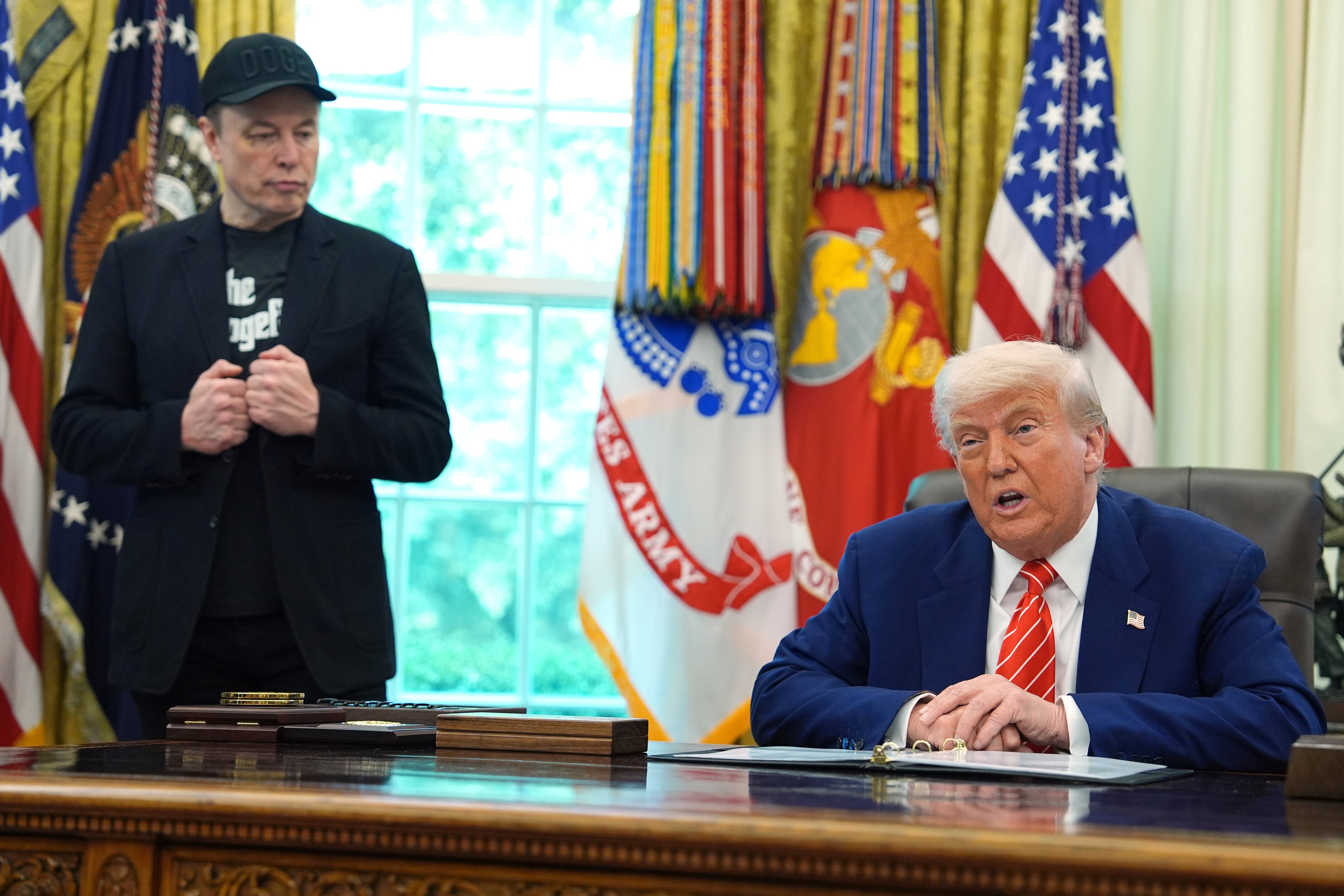Shares of Elon Musk’s electric vehicle maker fell sharply Thursday as investors feared his dispute with President Donald Trump will hurt the company.
Tesla plunged closed down more than 14% as a disagreement over the U.S. president’s budget bill turned nasty. After Musk said that Trump wouldn’t haven’t gotten elected without his help, Trump implied that he may turn the federal government against his companies, including Tesla and SpaceX.
“The easiest way to save money in our Budget, Billions and Billions of Dollars, is to terminate Elon’s Governmental Subsidies and Contracts,” Trump wrote on his social messaging service Truth Social. “I was always surprised that Biden didn’t do it!”
The drop on Thursday wiped out nearly $150 billion from Tesla’s market value, partially reversing a big runup in the eight weeks since Musk confirmed that Tesla would testing an autonomous, driverless “robotaxi” service in Austin, Texas, this month.
Investors fear Trump might not be in such a rush to usher in a future of self-driving cars in the U.S., and that could slam Tesla because so much of its future business depends on that.
“There is a fear that Trump is not going to play Mr. Nice Guy when in come to autonomous,” said Wedbush Securities analyst Dan Ives. “The whole goal of robotaxis is to have them 20 or 25 cities next year. If you start to heighten the regulatory environment, that could delay that path.”
Trump’s threat to cut government contracts seem targeted more to another of Musk’s businesses, SpaceX, his privately held rocket company that received billions of dollars to send astronauts and cargo to the International Space Station, provide launches and do other work for NASA. The company is currently racing to develop a mega rocket for the space agency to sent astronauts to moon next year.
A subsidiary of SpaceX, the satellite internet company Starlink, appears to also have benefited from Musk’s once-close relationship with the president.
On a trip with Trump to the Middle East last month, Musk announced that Saudi Arabia had approved his satellite service for aviation and maritime use. Though its not clear how much politics has played a role, a string of other recent deals for the company in Bangladesh, Pakistan, India and elsewhere has come as Trump has threatened tariffs and sent diplomats scrambling to please the president.
One measure of SpaceX’s success: A private financing round followed by a private sale of shares recently reportedly valued it at $350 billion, up from an estimated $210 billion just a year ago. Tesla shares initially got a lift from his support of Trump. In the weeks after Trump was elected, Tesla shares soared, hitting an all-time high on Dec. 17. But they gave back those gains during Musk’s time as head of a government cost-cutting group as Tesla’s reputation took a hit. They’ve recently popped higher again after Musk vowed to focus much more on Tesla and its upcoming launch of driverless taxis.













